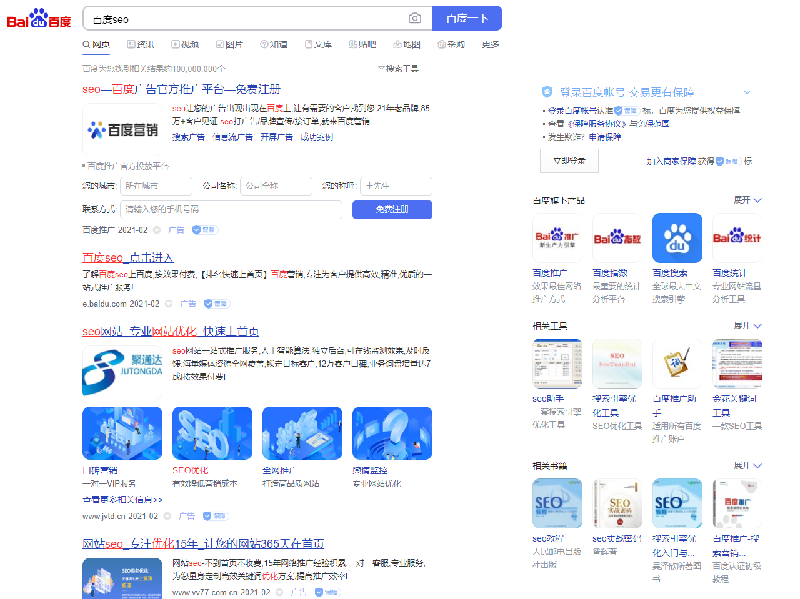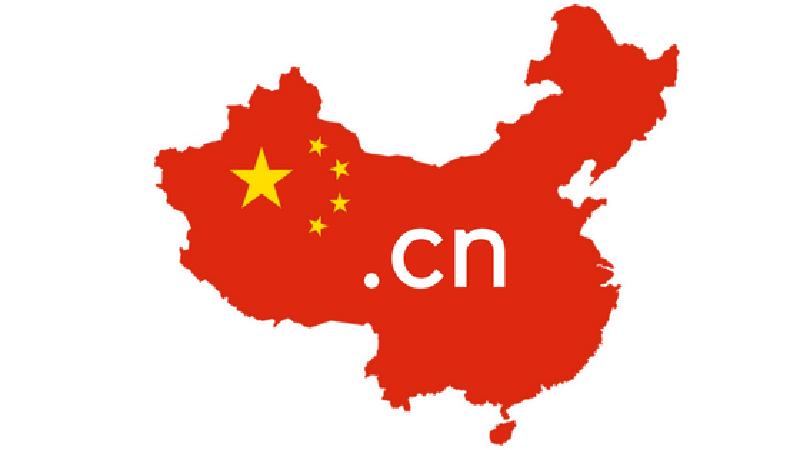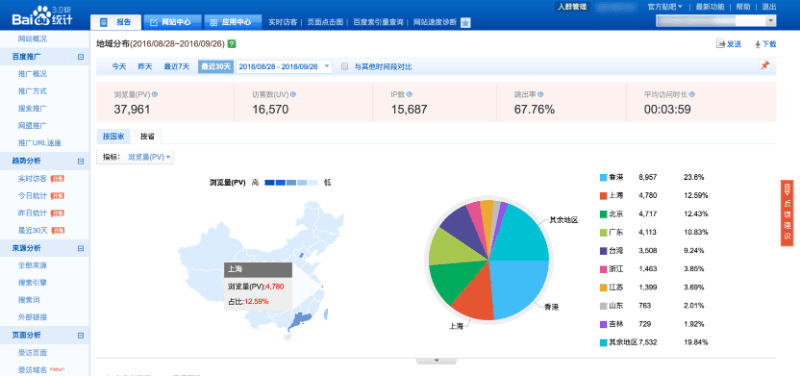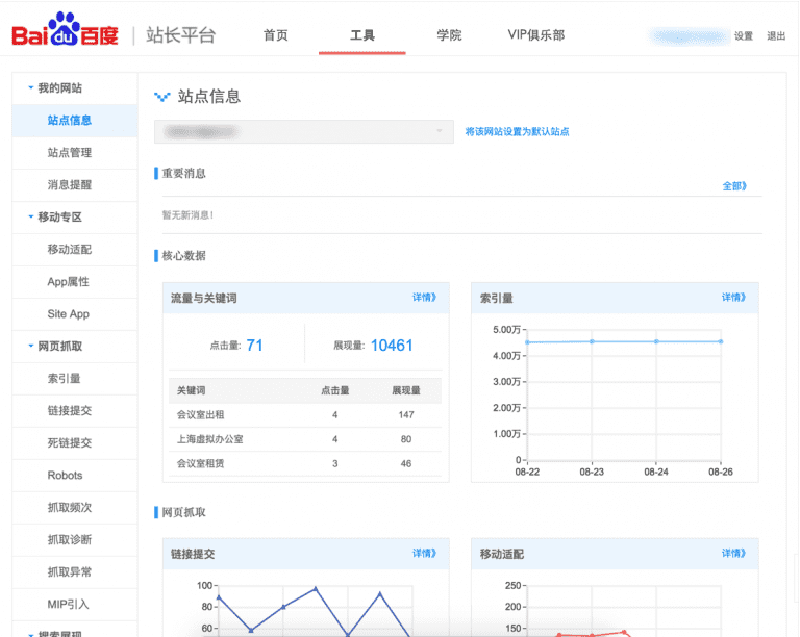Baidu (百度) SEO: How to Do SEO in the Chinese Google
Baidu (Chinese:百度) is the most popular search engine in China. If you want to break into China’s market, you’ll need a deep understanding of Baidu SEO – how to optimize your website for Baidu.
Definitely, you cannot use the same approach used for Google to optimize your website for Baidu. Baidu SEO presents inescapable challenges such as those related to complex language issues, cultural differences, censorship, etc., which cannot be tackled with the tools of Google.
Then, how to do SEO for Baidu? As a Chinese and an SEOer, I want to answer your question.
This guide will cover the most important aspect of Baidu SEO, including technical SEO, on-page SEO, link building, tools and analytics, and legal requirement for Baidu SEO.
Continue reading this Baidu search engine optimization guide to learn the more in-depth ways Baidu can be utilized for digital marketing success alongside the Chinese internet. I hope this guide is a good beginning to understand what you should focus on when doing SEO for Mainland China.
Reminder: Baidu favors ads, which is why the first page on a Baidu search is filled with sponsored content. This differs from Google, which still mainly displays organic content. However, Baidu users tend to prefer organic content and often skip through the first page of search results. Take this into account when you perform your keyword research, and don’t be alarmed when your website is not shown on the first page of Baidu.

Contents
- Part 1: Legal Requirements for Baidu SEO
- Part 2: Technical SEO for Baidu
- Part 3: On-site SEO Factors for Baidu
- Part 4: Off-site SEO factors for Baidu
- Part 4: Be Part of the Baidu Galaxy to Improve Baidu SEO
- Part 5: Tools and Analytics for Baidu SEO
- 2. Baidu Webmaster Tool
- 3. Baidu Zhishu (Baidu Index, 百度指数)
- Part 6: Full List of Baidu’s Algorithm Updates (Till June 2020)
- Final Thoughts
Part 1: Legal Requirements for Baidu SEO
1. Web hosting in China
The first factor that will give you a ranking boost on Baidu is hosting your website on a server in Mainland China. If your web hosting server is located outside of China, it will most certainly be very slow or even unavailable to Chinese users.
Only Chinese web hosting companies are allowed to host data on servers in Mainland China. Therefore, you won’t be able to use your current web host, and you’ll need to choose a Chinese company to be your hosting provider.
If you’re having an international website and you’re seriously looking to increase your rankings on Baidu, you should consider moving only the Chinese version of your website (for example http://www.yourwebsite.com/cn) to a Chinese web host.
2. Having an ICP License
In order to be allowed to host a website on a Chinese server, you’ll need a special authorization called an Internet Content Publishing (ICP) License.
The ICP license (or 备案) is basically a permit issued by the Chinese Ministry of Industry and Information Technology (中华人民共和国工业和信息化部) that is needed to operate a website in mainland China. According to Chinese law, all websites must clearly display the ICP number on their homepage.
3. Domains
It might seem convenient, if you already have a .com domain, to simply create a localized version of your website and add a /cn to your root domain. That won’t fly with Baidu, however. Make sure you use a .cn domain that is hosted within China. Baidu strongly favors the .CN domain suffix (China’s country code) over .com in ranking its search results. Baidu also doesn’t take kindly to sub-domains or multiple domains, so just stick to the standard .cn version.

4. Physical address
Make sure your website lists a physical location in China for your business.
5. Censorship
If your content contains certain words that have been blacklisted by the Chinese government, you can be sure that Baidu will de-index your page or your website altogether.
There are some things you should strictly refrain from if you want to do rank on Baidu. These aspects are sure to kill your website if you plan to target and SEO in China.
- Anti-government speech
- Inapt adult content
- Content related to gambling
- Any cultural-sensitive information
Part 2: Technical SEO for Baidu
1. Index Pages on Baidu
Although Baidu regularly crawls websites to keep their search engine users up-to-date, it can take 1-2 weeks (or longer) until your site and updates are indexed. If you want to add your website faster to the Baidu Index (Ziyuan), you can submit your URL here. Submit your sitemap so that all sites are indexed (same process as Google).
2. robots.txt
Baidu isn’t a fan of robots.txt files. So if you have any on your website, you may want to remove them and rely more on .htaccess files or the IIS server to set up the rules you would normally set up through robots.txt files.
3. iFrames
Do not use iFrames for any important content. Baidu spider is unable to read any element of a page within an iFrame.
4. JavaScript, Flash, and Ajax
The same rule applies to the content put in JavaScript, Flash, and Ajax. Baidu is unable to effectively crawl them. Always try to find an HTML alternative.
5. Sub-domains
The use of subdomains is not advised if you want to rank on Baidu.
While Google is considering the subdomains more and more as an integral part of the same website and they are a good solution in international SEO on Google, this is not at all the case with Baidu.
6. Site Speed
The page load speeds are one of the most important Baidu SEO factors in determining the rankings, far more than with Google. The slower your website, the lower your chances to rank well are. This is another important reason for hosting your site on a server in China, which will improve the page speed and your chances to rank on the Chinese search engine.
7. Https
Baidu switched to prioritizing HTTPS webpages more than HTTP webpages since the latter half of 2018.
Many websites on China’s search giant are yet to make this switch. So, in implementing Baidu SEO, you could be one step ahead by changing your security certificate beforehand.
8. Structured Data Snippets
Baidu search results pages typically contain far more structured data snippets than Google. This means that structured data is incredibly valuable when optimizing for Baidu SEO. You can submit this data through Baidu Open, which allows webmasters to create their own SERP widgets.
Part 3: On-site SEO Factors for Baidu
1. Chinese Language Usage
Baidu’s preferred language is Chinese simplified. All website contents, meta tags, and anchor texts should be written in simplified Chinese characters. Baidu prefers simplified over traditional Chinese and doesn’t consider Latin characters.
The use of Latin letters and words is only advised for the website URLs.
It’s also important to consider the specifies of the Chinese language when you optimize for Baidu. In the Chinese language, there are multiple dialects and multiple meanings to a single word. All your Chinese content should be written and proofreader by a native Chinese translator to ensure the correct words are being used.
2. Unique Content
From Google to Bing, from Yandex to Yahoo, all search engines penalize duplicate content, promoting uniqueness. But Baidu considers this aspect an extremely important factor, so while it is appropriate to avoid creating duplicate content, it’s also important to check frequently that content is not subject to scraping by third parties. In this case it is crucial to take action to solve the problem.
The meta title tag is one of the most important on-site optimization factors in Baidu’s ranking algorithm. Some even believe that Baidu gives higher importance to meta tags than Google. And among all meta tags, the meta title is probably the most important.
Optimizing meta title tags for Baidu is not much more difficult than writing meta titles for Google, but there are some important characteristics to take into account.
To rank on Baidu, your meta title should:
- be limited to 35 simplified Chinese characters: Normally a simplified Chinese character equals 2 Latin characters, that’s why the meta tags when writing in Chinese should be shorter;
- include the main keyword of the page (your targeted keyword): If possible, use the main keyword in the very beginning of the title tag, even if it may not look very natural;
- include your company or website name;
- use the underscore (_) or the hyphen (-) instead of the space, as words separator: surprisingly Baidu reads and understands the underscore as words separator.
The H1 is probably the second most important tag in Baidu’s ranking algorithm (after the meta title). Each page should have a unique H1 tag containing the targeted keyword. The H1 should appear before any other heading tag. Keyword usage in the other heading tags is also important. And, of course, heading tags should be hierarchized.
Unlike Google and Bing, Baidu still uses the meta description tags as a ranking signal.
Each meta description should:
- include your targeted keyword phrase(s)
- include your company or brand name.
- the meta description length limit is 78 simplified Chinese characters.
6. Place your keywords at the top of your website page
The Baidu crawler bot is not as powerful as Google and may miss keywords that feature at the bottom of your website page.
7. Thumbnail Images
Thumbnail images feature frequently on Baidu’s SERP. Google increasingly uses image recognition technology to provide relevant image results. Baidu relies more heavily on alt tags, image URLs and related descriptions. This means that optimizing image content has added importance for Baidu SEO.
Results from Baidu Images are also a familiar part of the SERP. If you have high-quality images, this is another way of driving traffic to your site.
8. Internal Linking
Here are some Baidu best practices for internal linking:
- The homepage should only link to main category pages. Sub-categories and other pages should be linked from the main category page.
- Every page should link back to the homepage.
- Include good link description in anchor text.
- NO links inside JavaScript or Flash.
- More internal links to a given page indicate its importance to Baidu.
- The closer a page is to the homepage – measured by how few clicks it takes to get there – the more important it is deemed.
- Orphaned pages (those not linked to) won’t be indexed.
9. Length
Websites with more words per page rank better on Baidu. The Baidu crawler may not be able to recognize your topic in a text with less than 300 words. On the other hand, it may not crawl through all 2,000 words on a webpage. Therefore, use between 300 and 1,000 words a page, and ensure that your most important content is in the first paragraphs of the page.
10. Work with a team of global content experts
Make sure to collaborate with SEO specialists, professional linguists, and native Chinese speakers to research, select, and translate keywords.
Part 4: Off-site SEO factors for Baidu
1. Backlinks Quantity
In Google SEO, the amount of links is far less important than quality. However, this is not entirely true for Baidu. The number of backlinks is an important factor to rank well on Baidu and most backlinks strategies focus on building a high number of backlinks, even if they are of lower quality.
2. Backlinks quality
On the other hand, the Chinese search engine is introducing more and more algorithm updates, and it’s clear that sooner or later the backlink quality will have a more important role when ranking websites.
My advice is to think in the long term and also consider the quality when you engage in link building on Baidu. Stay away from black-hat practices and risky backlink networks.
Of course, your backlinks should mainly come from websites written in Chinese simplified and you should prefer .cn domains.
3. Backlinks anchor text
The anchor text of the backlinks is also a very important ranking factor. It’s advised that it includes your targeted keyword(s) and a high number of exact match anchors is still acceptable for Baidu (at some extent, at least).
Part 4: Be Part of the Baidu Galaxy to Improve Baidu SEO
When Google has a lot of products around its search engine (maps, Gmail etc.), Baidu also have other major products in addition to its search engine. Specifically, the Chinese search engine also has its own encyclopedia (Baike), its Questions and answers website (Zhidao), its file sharing service (Wenku) and its forum platform (Tieba)

1. Create Your Company Profile on Baike (百科)
Baidu Baike is China’s answer to Wikipedia and one of the most trusted source for information. If you strive to enter the Chinese market and get as much people interested in you and your product, be it a service or goods, Baike will give you a top rank on Baidu. Therefore, you should not miss it.
This is the Google Baike profile for an example.
2. Engage on Baidu’s Q&A Platform Zhidao (知道)
Zhidao is another essential part of Baidu’s infrastructure. This is a Q&A website which allows people to answer questions about their business.
3. Leverage the File Sharing Platform Wenku (文库)
Another website that Baidu runs is called Wenku(文库 ) which is essentially a file-sharing service that supports a wide range of different documents. Companies can upload documents, whitepapers, and other useful resources for users to find. These will often appear in search results for the right keywords and can create meaningful impressions on users who come across them.
4. Join the Chinese Reddit Tieba (贴吧)
Baidu Tieba is the most popular online discussion forum in China. This platform is a mix between Quora and Reddit and mesmerizes internet users with its content-oriented and highly interactive appearance. Users can add a topic, and then view other peoples’ ideas on this. They can also follow certain topics or “bars” around pop culture topics, sports, and more.
In fact, this social interaction platform accounts for approximately 10% of all Baidu traffic. And more than 1 billion posts have been published on Tieba so far.
Part 5: Tools and Analytics for Baidu SEO
1. Baidu Analytics (Tongji)
Baidu Tongji is the official analytics tool of Baidu, similar to Google Analytics. It provides statistics and reports about a website’s traffic and sources, as well as conversions to sales.
The advantages of using Baidu Tongji include
- Integration with Baidu Ads for PPC
- Access to Baidu organic search terms, with which visitors find your site
- Baidu tracks visitors on an individual basis
- Check your site speed with the Baidu Site Speed Test
- Baidu SEO features, which are also included in the Baidu Webmaster Tool
However, especially compared to Google Analytics, you will find some significant differences:
- Baidu’s interface is only in Chinese (not English)
- Unlike Google, Baidu strictly separates mobile and desktop traffic
- Some Google Analytics features aren’t available in Baidu Tongji

2. Baidu Webmaster Tool
Baidu Webmaster Tools is a portal created to help webmasters and SEOs monitor and maintain their site’s presence in Baidu’s organic search results. The platform offers a great deal of metrics you can only get from Baidu, tools to test your site’s performance, and a two-way communication channel between you and Baidu. This means that if you are doing SEO in China, Baidu Webmaster Tools is an incredibly important tool you will have to master.
So what can you do on Baidu Webmaster Tools? Check the list below.
- Validate HTTPS site with Baidu
- Apply for brand terms protection
- Submit Content to Baidu for Indexation
- Submit broken links to Baidu
- Minimize negative SEO effects caused by site migration
- Track your site’s indexation on Baidu
- Track ranking keywords, impression and clicks in Baidu
- Track crawling errors
- Test for potential Baidu Spider crawling issue
- Track broken links and backlinks
- Track and adjust Baidu Spider’s crawling Frequency
- Create, validate or update robots.txt for Baidu
- Conduct site security test
- Avoid negative SEO effects caused by offline maintenance
- Optimize site for Baidu mobile
- Structured Data Submission in Baidu Webmaster Tools
- Access Baidu Webmaster Tools on mobile devices

3. Baidu Zhishu (Baidu Index, 百度指数)
First of all, Baidu Index (Baidu Zhishu) shows which search terms users entered. Therefore, it reveals trending data based on consumer searching behavior. Business can explore this tool to better understand the market insight and your target audience.
You can follow the search trends or identify your individual niche keywords and phrases over a period of time. On top of that, you can also analyze and evaluate search queries, and set filters like region or demographic.
Part 6: Full List of Baidu’s Algorithm Updates (Till June 2020)
| Baidu Algorithm | Target | Date |
| Ice Bucket 5.0 | Bad mobile search experience | Jul. 24, 2020 |
| Illegal Content | Gambling and related illegal content | Apr. 23, 2020 |
| Power Wind | Low-quality content and malicious aggregation | Feb. 27 2020 |
| Drizzle Algorithm | Battle against low-quality content in the B2B field | Nov. 7, 2019 |
| Beacon Algorithm 2.0 | Battle against plagiarism | Aug. 8, 2019 |
| Trade Wind | Battle against page turning induction | May. 22, 2019 |
| Baidu Thunder Algorithm | Actions of improving rankings on Baidu results by intentional repeated clicks, which are very popular among some Chinese websites in recent years. | Nov. 31, 2017 |
| Baidu Lightning Algorithm | First view load time would affect search rankings on Baidu | Oct. 10, 2017 |
| Baidu Breeze Algorithm | Actions of page title cheating and getting clicks via cheating visitors. | Sep. 30, 2017 |
| Baiduspider Https Fetch Upgrade | Fetches of Https data are strengthened, and Baiduspider would seize Https data in a faster way. | Aug. 30, 2017 |
| Baidu Hurricane Algorithm | Websites filled with illegally copied content. | Jul. 4, 2017 |
| Baidu Beacon-fire Program | Baidu mobile search page hijacking. | Feb. 23, 2017 |
| Baidu Blue Sky Algorithm | News sources’ actions of selling advertorials and directories. | Nov. 21, 2016 |
| Baidu Ice Bucket Algorithm 4.5 | Webpages with bad tempting ads. | Oct. 26, 2016 |
| Baidu Ice Bucket Algorithm 4.0 | Mobile pages with too many disturbing ads. | Sep. 19, 2016 |
| Baidu Skynet Algorithm | Websites that invade visitors’ privacy. | Aug. 10, 2016 |
| Baidu Ice Bucket Algorithm 3.0 | Actions that interrupt complete search path of users. | Jul. 15, 2016 |
| Baidu Ice Bucket Algorithm 2.0 | Websites that force visitors to log in to get rid of large ads and view their content on mobile devices. | Nov. 28, 2014 |
| Baidu Ice Bucket Algorithm 1.0 | Landing pages that affect user experience on mobile devices. | Aug. 30, 2014 |
| Scindapsus Aureus Algorithm 2.0 | External links in advertorials and websites with advertorials. | Jul. 1, 2013 |
| Baidu Pomegranate Algorithm | Webpages with bad ads that obstruct reading and low-quality content. | May. 17, 2013 |
| Baidu Scindapsus Aureus Algorithm | Actions of buying and selling links, including websites introducing hyperlinks, selling links and buying links. | Feb. 19, 2013 |
Final Thoughts
This is by no means an exhaustive list of tactics and tools for Baidu SEO, but it’s a start. If this seems hard, or just beyond the comfort zone of your in-house team, try to find a native speaker or agency to help you.
The Chinese online marketplace is the largest in the world. More than 800 million Chinese people use the internet, and the average person spends more than six hours per day online on their mobile phone alone. It’s worth inverting.
For more questions about Baidu SEO, you can leave a comment below.
